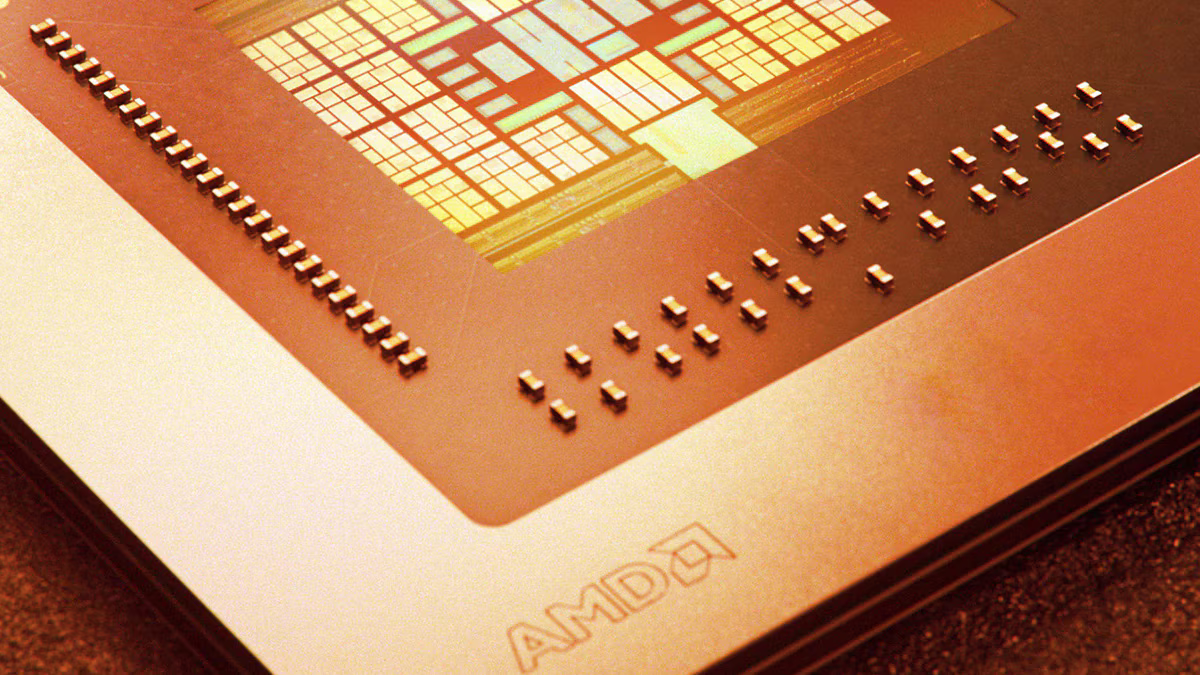AMD shows off its latest EPYC 5th gen hardware to challenge Nvidia's dominance
AMD is targeting data center workloads as the AI PC arms race continues

AMD has unveiled a raft of artificial intelligence (AI)-enabled hardware, including its 5th Gen AMD EPYC server processors and the Ryzen AI 300 series for mobile devices.
The announcements, delivered by AMD’s chair and CEO Dr. Lisa Su on stage at Computex 2024, came as part of the unveiling of its expanded roadmap for its Instinct product line of AI accelerators, which features a number of 2024 release windows.
The company's 5th-generation EPYC server processors are slated to release in the second-half of 2024, for instance, while the AMD Instinct MI325X accelerator is slated for Q4. Further down the line is 2025’s CDNA 4 architecture, making a first appearance in the Instinct MI350 series.
AMD’s ‘multi-generational’ AI roadmap
Su explained the company’s plans to deliver new AI products and performance increases on ‘an annual cadence’, with a particular emphasis on performance and memory for generative AI workloads, where AMD claims of being ‘industry-leading’, with the AMD Instinct MI325X having ‘288GB ultra-fast HBM3E memory’.
However, the company does then undercut this by claiming that the MI350 series will be 35x faster than the 300 series, and a MI400 series is already penciled in for 2026.
Annual release schedules have always fatigued customers, and the nagging uncertainty of just how meaningful any of these gains are amidst all of the jargon could put off business enterprise customers looking to bring AI into the workplace quite possibly for the first time.
The AI boom
Speaking alongside Su at Computex, Microsoft CEO Satya Nadella described the AI zeitgeist as ‘a massive platform shift, with the promise to transform how we live and work’. Microsoft’s own Copilot software is, incidentally, a big part of the push in that direction, whether you like it or not.
Sign up to the TechRadar Pro newsletter to get all the top news, opinion, features and guidance your business needs to succeed!
A cynic might say that this is an attempt to cash in on a booming bubble before it bursts, or at least ride out a buzzword, and that it’s only happening because big tech companies keep forcing the topic - but this is, obviously, working a treat, so why wouldn’t AMD, and seemingly every other major manufacturer, keep going all in on it?
While, for us, the jargon might be headache-inducing, the ultimate goal is to make AI straightforward for the average user, available locally, and to bake it into invaluable everyday processes to truly make AI ‘happen’.
After a great deal of worrying in the industry about not having found any uses for the technology, AMD has fired the starting pistol. HP demonstrated image generation AI tool Stable Diffusion running locally on a HP laptop kitted out with a Ryzen AI 300 processor.
Yet tech companies may still have a way to go to demonstrate AI’s real worth, if any. Lenovo and Asus also ran software demonstrations that AMD says applies across business, consumer, and content creation, although it’s also being extremely vague about the contents of these demonstrations aimed at the layperson.
AMD did speak, however, on how AI’s true role might be in industry and research, showcasing, for example, how Illumina is using AI to sequence genomes, Subaru is using it in its driver-assistance software to reach zero-fatalities by 2030, and Hitachi Energy is predicting electrical overvoltage with it.
More from TechRadar Pro
- AMD teams up with Arm to unveil AI chip family that does preprocessing, inference and postprocessing on one silicon — but not yet
- AMD is selling flagship AI GPUs at a huge discount to Microsoft — but I'm not sure that will be enough to bother Nvidia
- Lenovo's latest desktop PCs are AI-ready, and powered by the latest AMD chips

Luke Hughes holds the role of Staff Writer at TechRadar Pro, producing news, features and deals content across topics ranging from computing to cloud services, cybersecurity, data privacy and business software.